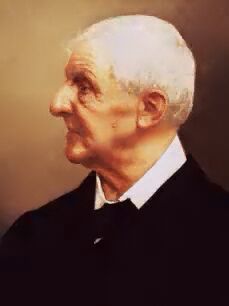Bruckner in Baltimore
This account from Baltimore was kindly contributed by Ionarts guest reviewer John Henry Crosby. Under the guidance of the German conductor Günther Herbig, the Baltimore Symphony Orchestra presented a Thursday evening concert featuring the music of Steven Stucky, Mozart, and Bruckner. With a hall that could hardly have been more than half full, the electricity of an audience full of anticipation was sadly lacking. Stucky’s Anniversary Greeting did not lose much for lack of listeners, given that it was over almost before it had begun, in about 80 seconds. Stucky is a reasonably well-known American composer, but so brief a composition wasn’t able to do much to serve his cause.
Under the guidance of the German conductor Günther Herbig, the Baltimore Symphony Orchestra presented a Thursday evening concert featuring the music of Steven Stucky, Mozart, and Bruckner. With a hall that could hardly have been more than half full, the electricity of an audience full of anticipation was sadly lacking. Stucky’s Anniversary Greeting did not lose much for lack of listeners, given that it was over almost before it had begun, in about 80 seconds. Stucky is a reasonably well-known American composer, but so brief a composition wasn’t able to do much to serve his cause.
Mozart’s Horn Concerto No. 3 received a capable performance by Philip Munds, the BSO’s principal horn player. Supported by the lovely and spirited playing of the BSO, Munds offered a somewhat predictable rendition of an old favorite, an impression that was only heightened by a certain lack of stage presence on his part and a tendency to peruse the audience between his solos. Perhaps this was his way of dealing with performance anxiety, but greater composure and concentration throughout would certainly have enhanced the presentation.
The real event of the evening, however, was the BSO’s performance of Anton Bruckner’s Ninth Symphony. Guest conductor Günther Herbig, a student of Scherchen's and Karajan's who succeeded Kurt Sanderling at the Berlin Symphony Orchestra and has been at the helm in Detroit and Toronto, not only demonstrated a grasp of the Ninth’s massive architectonic structure, its thematic groupings, and its dramatic trajectory, but he also managed to communicate this to the very responsive musicians of the BSO. The great Brucknerian conductor Günter Wand once described the experiencing of falling into the abyss of Bruckner’s music as “falling upwards,” and it was this upward surge, this rush into transcendence, which Herbig achieved to a remarkable degree, especially in the sublime first theme of the third movement, the Adagio, with its remarkable kinship to the inexpressibly pure music of the grail theme in Wagner’s opera Parsifal. Herbig’s skillful conducting also manifested itself in a special ability to “draw out” the musical line: while Bruckner is often performed rather one-dimensionally as a series of transitions between loud and soft, the moments of culmination under Herbig’s guidance were not just climaxes in terms of sheer volume but, so to speak, moments of “opening outward,” of blossoming.  Herbig’s rendition of the Ninth Symphony was perhaps somewhat subdued in its treatment of the darker, even ominous, passages that pervade the entire work. “The abyss in man cries out to the abyss in God: tell me, which is deeper!” -- so the medieval mystic Angelius Silesius expressed the immensity and even terrifying depth of the human heart. This experience of depth and of the abyss in man is ever present in the music of Bruckner, yet the Ninth under Herbig did not, perhaps, plumb this depth sufficiently. Bruckner in the hands of conductors such as Eugen Jochum, Herbert von Karajan, Günter Wand, and even Carlo Maria Giulini is more terrifying, more overwhelming, in its daring confrontation with the abyss in Bruckner’s music, yet the full effect of the contrast between these moments and those of consolation and resolution are thereby assured. In this sense of the totality of the Brucknerian spectrum, Herbig’s interpretation of the Ninth was still (yet appropriately?) unfinished.
Herbig’s rendition of the Ninth Symphony was perhaps somewhat subdued in its treatment of the darker, even ominous, passages that pervade the entire work. “The abyss in man cries out to the abyss in God: tell me, which is deeper!” -- so the medieval mystic Angelius Silesius expressed the immensity and even terrifying depth of the human heart. This experience of depth and of the abyss in man is ever present in the music of Bruckner, yet the Ninth under Herbig did not, perhaps, plumb this depth sufficiently. Bruckner in the hands of conductors such as Eugen Jochum, Herbert von Karajan, Günter Wand, and even Carlo Maria Giulini is more terrifying, more overwhelming, in its daring confrontation with the abyss in Bruckner’s music, yet the full effect of the contrast between these moments and those of consolation and resolution are thereby assured. In this sense of the totality of the Brucknerian spectrum, Herbig’s interpretation of the Ninth was still (yet appropriately?) unfinished.
Tim Smith, BSO gives Bruckner a break, with fine Symphony No. 9 (Baltimore Sun, February 4) |
Herbig may not be one of the defining conductors of his age, yet his interpretation of Bruckner’s Ninth Symphony was compelling and challenging. In an age of traveling musicians, performances can so often leave an impression of being automatic and even standardized. And though he stands squarely within the tradition of Bruckner conducting, Herbig offered not just a performance of the Ninth Symphony but succeeded in bringing the Ninth Symphony to life in a very beautiful, dignified, and inspiring manner. Unlike so many other baton-waving conductors, one had the sense that he was really doing justice to a magnificent piece of music.
Repeat performances will take place at Meyerhoff Hall at 8PM on Friday and at 3PM on Sunday. On Saturday, the BSO will play this program at Strathmore at 8PM. This reviewer, for one, will not miss the opportunity for a second helping of Bruckner.





















































No comments:
Post a Comment